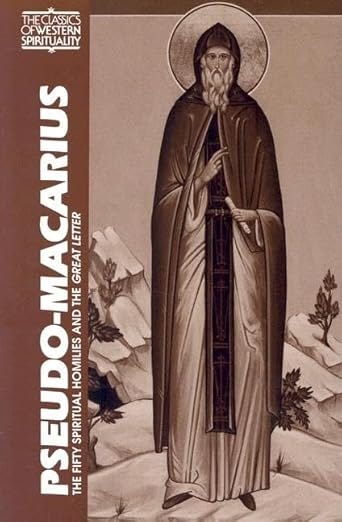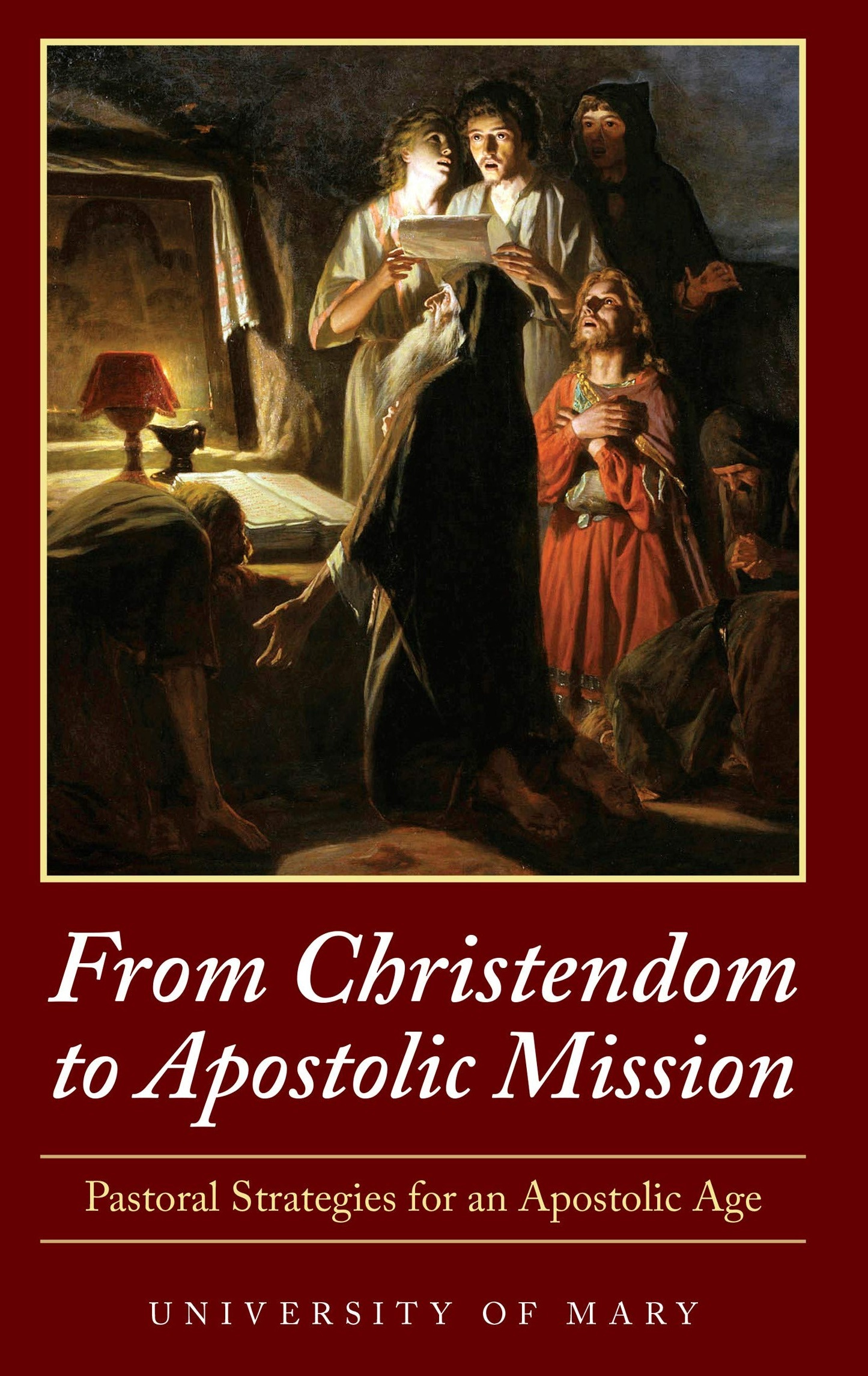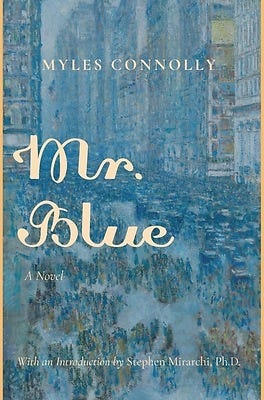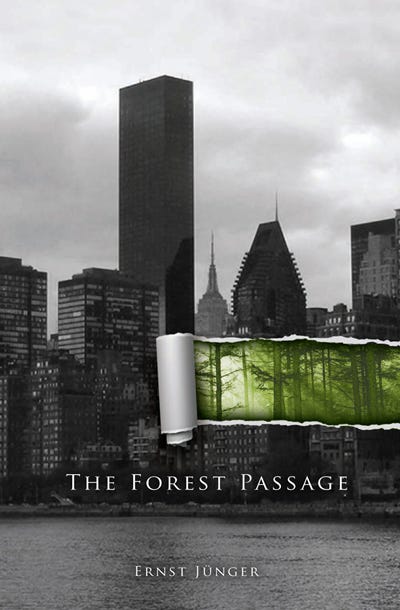Each month I share a few notes on the books I read during the previous month. The idea of the notes is to give anyone who might be interested enough of a glimpse into the book, at least what caught my eye, to decide if its worthy of your limited time.
Pseudo-Macarius: The Fifty Spiritual Homilies and the Great Letter
Macarius was probably a Syrian writing in Greek in the third century AD. (This is not the better known Macarius the Egyptian—that’s another guy.) An ascetic and a hermit, his is a less common name than some of the other desert fathers like St. Anthony. His Homilies and the Great Letter were delightful and I’ll share with you, briefly, a few of the insights.
In an early sermon, Macarius criticizes Christianity that manifests as simple assent to reasoned argument. Our spiritual life should include the affective - seeking the experience of God not just the idea of Him. You might say that Macarius calls for a more primitive Christianity which does not erect human reason, however great a gift it is, as an idol standing between us and God. In this way he reminded me of Jean Leclerq’s thesis in Love of Learning and the Desire for God: the Benedictine monastic life is characterized by desire and its favorite prayer is the Song of Songs.
Macarius employs the sustained metaphor of combat to describe our spiritual life on earth. He argues that human beings are, in fact, in a fair fight against evil spirits, an equal match against sin and the devil—and a match that becomes unequal in our favor when we call upon God. And while we have a great responsibility to combat demons in our lives, we need a savior because we are not a match for death itself. I like this take, because of the agency it requires of us. We are combatants in a fair fight, so we better fight hard, but we also have to rely on God to overcome the final hurdle of death, itself.
In Macarius’ view, the soul is an abyss, and simply living well will not achieve perfection. Rather, like Beauwolf descending to fight Grendel’s mother in the depths, we must confront the serpent of evil where it lies in silence, breeding monsters in the silent depths of our own souls. Macarius is strong like that.
From Christendom to Apostolic Mission
This is a book published by the University of Mary out in North Dakota and appears to have been written by committee (usually a bad thing, but in this case it works). The book was recommended by a friend of mine who knew one of the chief authors, and I very much appreciate the recommendation.
I have often thought that high ranking clergy within the Catholic Church seem unaware of some important realities unfolding within the larger culture. My last piece on Education Leadership and Religious Institutions makes this case in the context of religious education. But situations like the Church’s response to the government’s Covid-19 shutdowns indicate to me (and many) a disconnect between the stated beliefs of the clergy and their practical willingness to enact those beliefs. Many church leaders closed churches and agreed to stop administering the sacraments to the faithful when under pressure from the government. Perhaps the clergy were unaware that these actions preached a very clear message about the place of the sacraments in a hierarchy of goods. That place was below the newly minted virtues of compliance and safety.
Be that as it may, this book is a sustained reflection on the state of the world and the Church’s relation to it. The root argument is that many of the organizational and administrative structures the church currently maintains were built during a time when Christianity was the de-facto organizer of society. The authors call this Christendom.
In contrast to that time, the authors argue we are now in a period in which the general culture and social organization is not friendly to Christianity, and, in many cases, is overtly hostile. The authors do not wring their hands about this (thank goodness), rather they acknowledge it and embrace it as a similar condition to the one in which the Church was founded. They call this an Apostolic Age which requires initiatives and organizational structures that acknowledge that reality. In practice, this means less-developed physical infrastructure, certainly a less-developed bureaucratic apparatus, and as I have written about elsewhere, different approaches to educating the faithful and evangelizing those who are not yet faithful.
Meanwhile, from the Vatican drizzles a patter of rhetoric which often suggests that being pastoral means encouraging people to live in sin. The authors of this book note that Christ Himself did not, in fact, convert most of those to whom He preached. As a result of His pastoral approach, most turned their backs on Him because of the difficulty of His message. And while He ministered to sinners, His ministry never consisted of encouraging them to stay as they were. Rather, He told hard truths and invited them, however sinful they were, to follow Him. This is the pastoral approach for an apostolic age.
I think this is an important book. It’s one I will be reading with my children, as it offers the best orientation to our contemporary situation in life as Christians that I’ve come across in recent years.
Myles Connolly: Mr. Blue
This novel was a recommendation from a friend, and I tried to like it. This is an attempt at a whimsical counter-cultural story about a young man who, living in New York, breaks all society’s conventions and lives very much against the grain as a devout holy fool. But it does not work.
It’s pious, for sure, but also relentlessly pedantic. It lacks the zany charm of some of Chesterton’s larks about holy fools, like, for example, his novel Manalive, or the exotic holy fools in Larus. Mr. Blue lacks a plot and neither the character Blue nor the narrator have much real character development throughout. I could see this being useful in a pedantic environment with folks unfamiliar with other literature of the kind, but as it is, it falls very flat. And with so much good literature available, this one is not worth the time. Especially if you already find Chesterton overly cute and pedantic, do not hazard Mr. Blue.
Ernst Junger: The Forrest Passage
Unfortunately, this is an important book for our time. If you’ve read it, you’ll know why its importance is unfortunate. I think of this book in the same category as some of Solzhenitsyn’s work or Milosz’s Captive Mind. I won’t attempt to summarize the whole (Junger does this himself in the final paragraph of the book) but flag a few of Junger’s points that struck a chord with me.
“The voter finds himself faced with a real dilemma, since he is invited to make a free decision by a power that for its part has no intention of playing by the rules. This same power demands his allegiance, while it survives on breaches of allegiance.”
“In general, man will tend to rely on the system or yield to it even when he should already be drawing on his own resources…. But the great danger is that man relies too heavily on this assistance and becomes helpless when it fails to materialize. Every comfort must be paid for. The condition of the domesticated animal drags behind it that of the slaughterhouse animal.”
“Human greatness must ever and again be won anew. Victory comes when the assault of the ignoble is beaten back in one’s own breast.”
“Avoiding doctors, trusting the truth of the body, and keeping an ear open to its voice: this is the best formula for the healthy….When a ship goes down, its dispensary sinks with it. Then other things become more important….A regularly vaccinated and sanitized crew, habituated to medication and of high average age, has a lower chance of survival here than a crew that knows nothing of all this. A minimal mortality rate in quiet times is no measure of true health; overnight it can switch into its opposite.”
“Long periods of peace foster certain optical illusions: one is the conviction that the inviolability of the home is grounded in the constitution….In reality, it is grounded in the family father, who, sons at his side, fills the doorway with an axe in his hand.”






